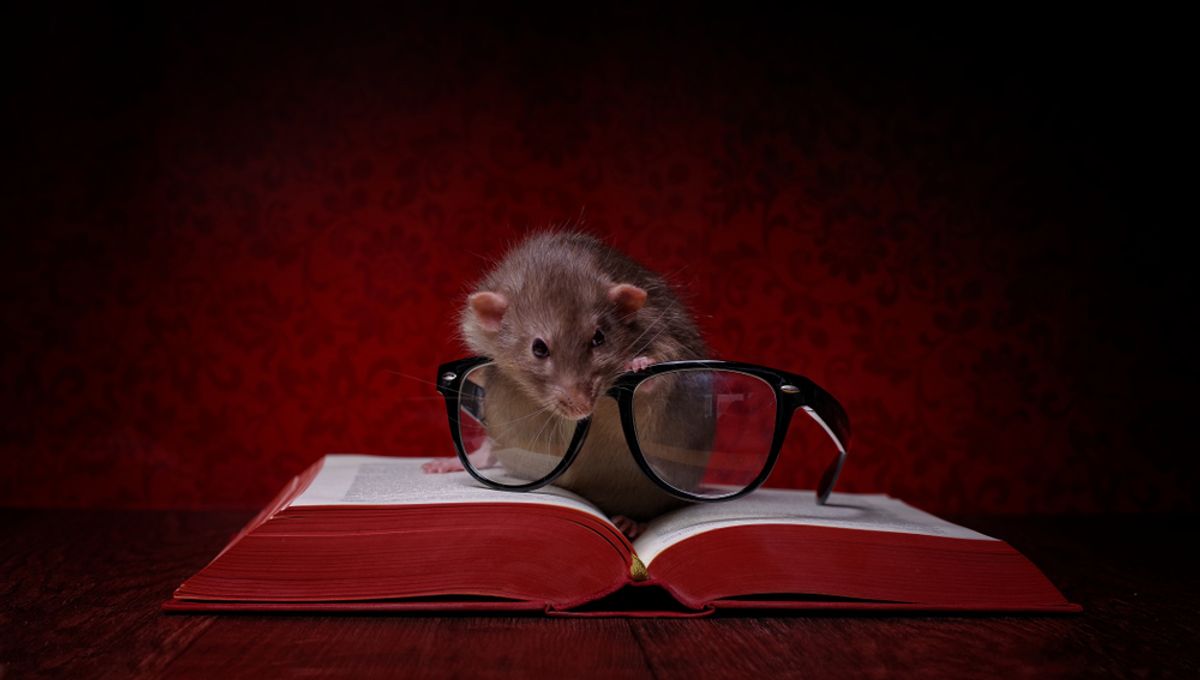
Rats have been found to slow down their playing of a game in order to better understand the strategies that will help them win more in the long run, despite a lesser initial reward. Once again, the rodents are showing many of us humans up though to be fair, we are the ones setting up the game in the first place.
Animal survival is all about making decisions, which requires a trade-off between speed and correctness. The risks are obvious – jump too fast and you could make the wrong decision, too slow and you may have missed your chance.
This speed-accuracy trade-off has been heavily studied, but Harvard University PhD student Javier Masís has taken it a step further in eLife, looking into whether rats will also take into account that situations can repeat. If there is the potential to learn how to deal with things better in future, that might tip the scales on whether to move fast or slow. “We aimed to investigate the difficult intertemporal choice problem that exists when you have the possibility to improve your behavior through learning,” Masís said in a statement.
Masís and co-authors repeatedly showed 26 female rats images of an object. Depending on what they were shown the rats licked either a left or right touch-sensitive port. Those that licked correctly were rewarded, while getting it wrong led to being briefly locked out of the game.
Incidentally, we don’t know if Masís’s lab is cheap, or if his rats can just be bought more easily than smaller rodents, because the reward was water, whereas other researchers have incentivized their mice with strawberry milkshakes.
In a preliminary experiment, Masís tested how well the rats managed to balance speed and accuracy for maximum payoff over repeated efforts. The game could be set to different difficulty levels, so the ideal speed was not fixed. Masís found rats initially fell below optimum, missing out on more than 20 percent of the potential liquid payoff over time. However, with more familiarity with the game, they closed in on the optimum time to decide to maximize their total reward.
This raises the question of whether the learning was incidental, or if the rats were willing to change their short-term strategy in order to learn more, and thus gain a bigger payoff eventually.
Masís and co-authors addressed this by testing the rate at which rats learned and seeing how this related to the time they took to make choices. “Fast responses mean minimal stimulus exposure, little opportunity for perceptual processing, and consequently slow learning,” the paper notes. Consequently, rats that took longer to decide early on learned more and improved more quickly.
The paper concludes most of the rats were “non-greedy”, taking longer than optimum at first so that they could better understand the game and win more in the long run. This is particularly impressive, because of course the rats had not been instructed on how long the game would last. There’s not much point learning something if you will soon be stopped from playing it. However, either because they expected the game to continue, or for the intellectual thrill of it, the rats gave up some immediate reward.
Moreover, when a subset of the rats were given a version of the game that couldn’t be learned they responded by optimizing their response time almost straight away, suggesting learning was the reason for the go-slow in the learnable version.
“Our results provide a new view of the speed-accuracy trade-off by showing that perceptual decision-making behavior is strongly shaped by the stringent requirement to learn quickly,” said senior author Dr Andrew Saxe of University College London.
“Not only is the world we live in non-stationary; we are also non-stationary, and we take that into account as we move around the world making choices,” Masís said.
Saxe added: “You don’t learn the piano by futzing around the keys occasionally…You practice at the expense of other more immediately rewarding activities because you know you’ll improve and it’ll probably be worth it in the end.”
If you ever need motivation to practice the piano or anything else, just think about the rats outdoing you.
The paper is open access in eLife.
Source Link: Rats Love Learning So Much They Will Sacrifice Immediate Rewards For It